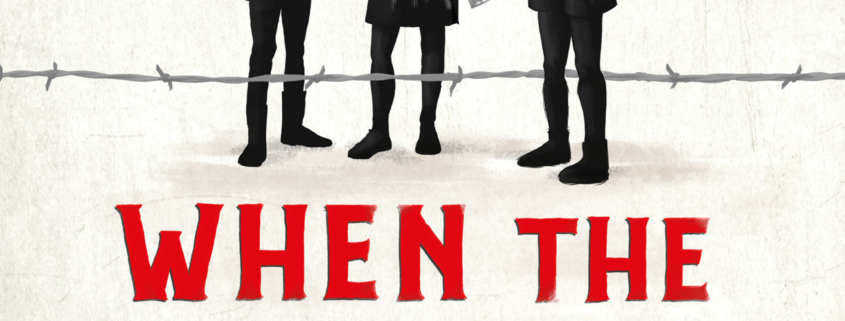Putting My Cards on the Table by Liz Kessler
When The World Was Ours by Liz Kessler is out 21st January 2021 (Hardback, Simon & Schuster Childrens Books)
For at least the last decade, I’ve had a growing desire to write a book inspired by an event that took place in 1934.
A moment on a Danube Steamer in Vienna – where my dad, aged four, knelt on a chair and nearly scuffed a woman’s dress with his feet – led to a conversation between the woman and my grandfather. The conversation led to the woman and her husband missing their stop, which led to a day spent with my grandparents, which led to a thank you letter some time later.
This letter would be the final, essential, key that would lead to my dad and his parents escaping Nazi-occupied Czechoslovakia five years later.


The themes that lie at the heart of my dad’s story have worked their way into almost every book I’ve written. The tiny moments that our lives turn on and the unavoidable question of where our lives might have led if it wasn’t for that moment. Standing up for what you believe in. And underneath it all: the offer of friendship and kindness, and how reaching out to others can transform the world.
For many years, these themes have been under the surface of my books, whether they were about mermaids, time travel, teenagers coming out or young people with super powers! But a couple of years ago, I decided it was time to put my cards on the table and write the book that had been waiting in my heart for its time to come.
Along came my first character, Leo. But I didn’t only want to tell my dad’s story of escape. For me, the fascinating thing has always been the question that lay behind the facts: what if he had never knelt on that chair?
In order to answer that question, I had to go to the very dark heart of the Holocaust. I needed another character, one who didn’t have that moment of extraordinary chance. So now I had my second character, Elsa.
But I realised there was another question I wanted to explore. Neither child had any power over the events around them or where these events would take their lives. What if
there were a third friend, equally swept up by the world around him but this time not Jewish?
As soon as I asked that question, the third character – Max – appeared. And then I knew that with these three best friends and a setting of Vienna in 1936, I had the beginnings of a story that had been in my mind, in my heart, in my DNA, for many years.
Thus followed a year when pretty much everything I read or did was about the Holocaust, including a research trip like no other: driving through Central Europe across five countries, visiting four concentration camps and going to multiple museums, synagogues, talks and tours. The trip was one of the most intense – and at times distressing – things I’ve ever done.
As the book unfolded, I knew I didn’t want it just to be about something that happened in the past. I wanted it to feel relevant now. I wanted young people who read it to see themselves in its pages, to ask themselves which character they identified with, and how they might have dealt with some of the situations in the book, and making links with the world around them today.
Underneath these questions, there is one that is perhaps more important than them all. The closing chapters suggest a baton being passed on. My question is: if that baton were handed to you, what would you do with it?
I believe it is only in answering this question that we find where our humanity truly lies, and which side of history we want to be on.





Leave a Reply
Want to join the discussion?Feel free to contribute!